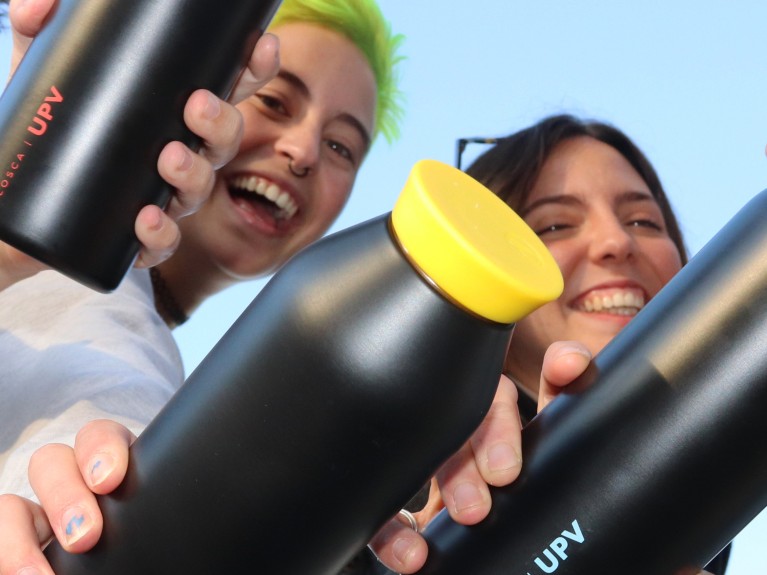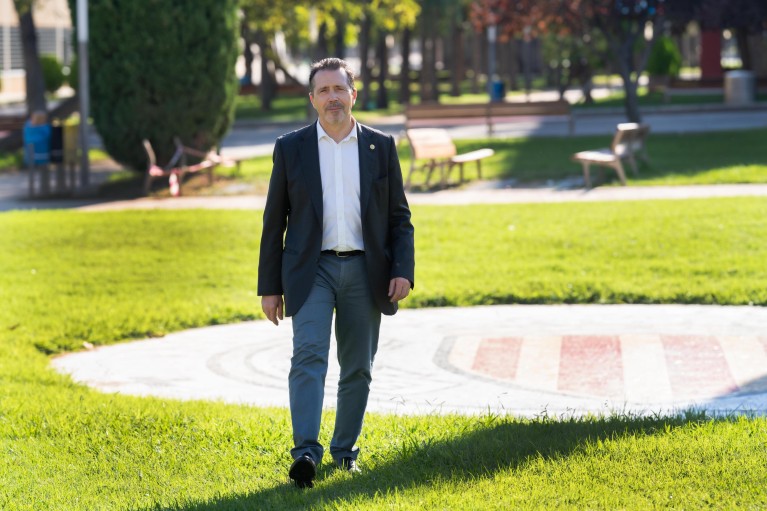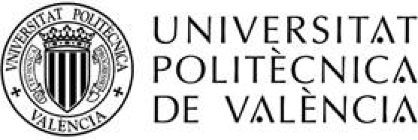
UPV has developed a number of programs to improve sustainability on campus and in the surrounding community, including the development of a new app that incentivises the use of refillable water bottles by students. Credit: Universitat Politècnica de València
Most organizations mark big anniversaries by showcasing past achievements, but Universitat Politècnica de València (UPV) just turned 50 and is focused firmly on the future. The institution has made a broad commitment to support the United Nations Sustainable Development Goals, and it is enlisting its 40,000 members and students to help reduce their environmental impact on- and off-campus.
“Our goal is to become the first carbon neutral university within the next few years,” says José Capilla, Rector of UPV. “We’ve already reduced our carbon footprint to about a tenth of 2014 levels through simple energy saving techniques, from improving insulation to closing buildings that are not in use.”
The next step, he observes, includes refurbishing older buildings with state-of-the-art sustainability technologies. “UPV already uses renewable sources,” Capilla says, “but by installing photovoltaic panels on campus roofs, we could become energy self-sufficient.”
UPV is also leading a number of research projects on sustainability, including a partnership with the Valencian government and port authority to develop green hydrogen technology to carry people and goods.
Smart and sustainable campus
To reach its objectives, UPV has recruited more than 50 researchers to develop plans to improve energy efficiency, restore natural biodiversity, reduce transport emissions, build greener business relations, embed sustainability in the curriculum, and create a smart campus that monitors environmental impacts. “We want to align learning and research to the promotion of a healthy and sustainable lifestyle", says Capilla.
Rector José Capilla, on campus at UPV. Credit: Universitat Politècnica de València
He acknowledges that spurring citizens to action can be difficult, though ultimately it yields better results. “Everyone is used to a certain way of working, living and understanding the world,” he says, and changing those expectations can take persuasion.
Débora Domingo, Vice-rector for Sustainable Development of Campus, adds, “People expect picture-perfect green spaces seen in campus magazines, but that is not in line with Valencia’s dry climate. Instead, we are working to turn areas in UPV into a living lab, where local flora and fauna are left to take over and results are measured.”
The key to success, Domingo emphasizes, is to engage the community. For instance: “We’ve just launched an app in which people get points each time they refill their water bottles at a fountain across the campuses and city,” she says. “Once they have enough points they win a reusable drinking bottle”.
This app also generates useful data. “In just 10 days, we’ve tracked more than 18,000 refills, which equates to a reduction of 1,550 kilos of CO2 emissions and 224 kilogrammes of plastic,” Domingo states. “It would be great to upgrade the app to reward other eco-friendly activities, such as cycling to work or recycling laptops.”
Beyond UPV’s individual efforts, the university is a partner in the ENHANCE Alliance, together with six other European technical institutions devoted to addressing climate change, sustainability and digitalisation. “We are not alone in this challenge,” underlines Jose F. Monserrat, Vice-rector for International Affairs and Communication at UPV. “Within the consortium we are sharing our best practices to ensure the next generation of students are equally driven to improve the sustainability of their campuses”.


